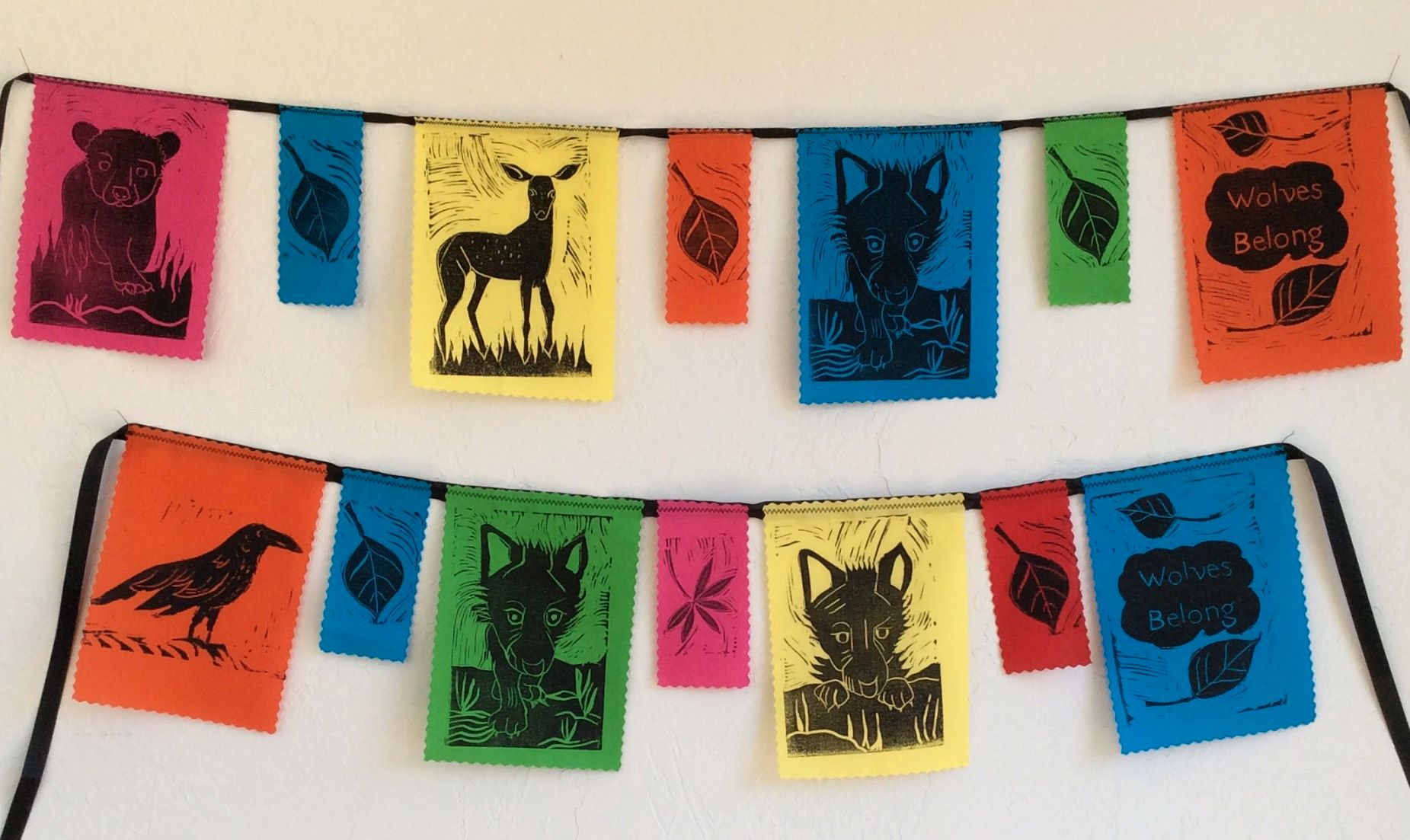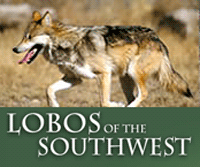Arizona Daily Sun (Original) Posted December 6, 2017 by Emery Cowan
Up to a dozen Mexican wolf pups could be cross-fostered with wild packs in Arizona and New Mexico next year under a plan put out by wildlife managers Monday.
Released each winter, the plan details translocations and releases of captive wolves proposed for that year. Those actions are vital to increasing the wolves' genetic diversity and making progress toward the recovery of the endangered species. An updated plan establishing a recovery goal of 320 wolves in the wild was released by federal wildlife officials last week.
The most recent annual count found at least 113 Mexican wolves living in the forests in southeastern Arizona and southwestern New Mexico, but the animals are as related to one another as full siblings.
The process of cross-fostering involves placing captive-born wolf pups that represent valuable genetic diversity into wild dens with similarly aged pups so the mother raises them as her own. The process has shown some initial success, with at least 12 cross-fosters taking place since 2014. It's projected that just a third of those pups will make it to breeding age though, based on past survival rates.
The release plan for next year does not include the release of adult wolves from captivity into the wild, a strategy considered necessary by many wolf advocates. The release of two wolf packs from captivity that was planned for this year didn’t happen either.
The release of adult wolves has drawn strong opposition from wildlife officials in Arizona, who say they disproportionately come into conflict with livestock and humans. In 2015 the Arizona Game and Fish Commission voted to oppose all new releases of adult wolves.
While it supports cross-fostering, the commission voted to limit them to six per year based on staff capacity to perform the process, said Jim deVos, assistant director of wildlife management for the Arizona Game and Fish Department.
But even 12 cross fosters that are authorized for this year are “utterly insufficient” to address the genetic emergency that the wild Mexican wolf population is facing at this point, said Michael Robinson, with the Center for Biological Diversity.
“It’s pretty dire,” Robinson said.
Robinson calculated that 52 pups were born in the wild in 2017. Assuming the same number are born in 2018 and wolf managers are successful in cross-fostering 12 more pups from captivity, less than one in four of that cohort of wild-born wolves would be able to eventually pair with a suitable, genetically distinct mate, Robinson said.
Robinson said cross-fostering is still experimental and questioned why the pups’ captive parents can’t be released with them. That would immediately put more genetically diverse, breeding wolves into the wild, instead of having to wait for the pups to mature, he said.
He disputes reports that adult wolves released from captivity are more problematic.
In addition to cross-fostering, the interagency team of wolf managers is considering temporarily removing and artificially inseminating a particular female to prevent her from mating with her brother.
Both deVos and Robinson said they support that move. DeVos said artificial insemination, if it works, would be a “huge advance” for Mexican wolf recovery.
But the fact that it has gotten to the point where a brother and a sister are about to mate is a bad sign for the wolves, Robinson said. He cited a study of gray wolves in Yellowstone National Park that found the animals deliberately avoid inbreeding. The fact that a brother and sister are trying to pair then, suggests these Mexican wolves “really didn't have any other choices,” Robinson said.





